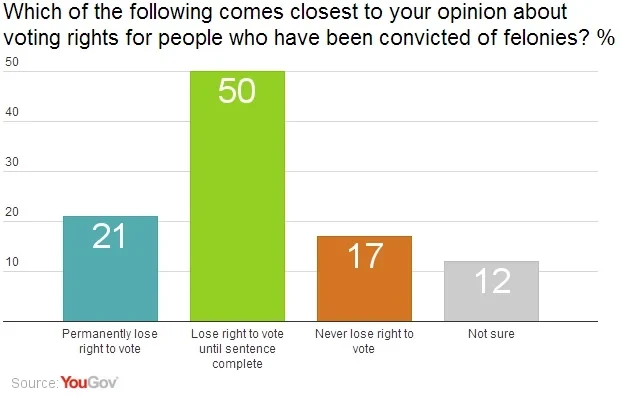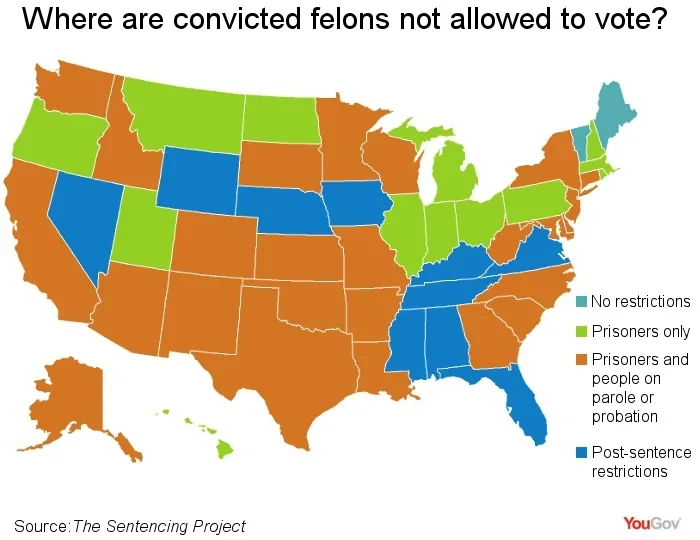Most Americans think that convicted felons should be allowed to vote after they have served their sentences
Last week the Attorney General, Eric Holder, gave a speech at Georgetown where he called upon states to overturn laws that prevent felons from voting, even after they have served their time. Just under six million Americans who would otherwise be able to vote are denied the vote in this way, with up to 7% of the population of some states barred from voting because of their criminal records.
The latest research from YouGov shows that only 21% of Americans think that convicted felons should permanently lose the right to vote. Half of the public (50%) think that ex-convicts should once again enjoy the right to vote once they have completed their sentences, while 17% of Americans think that felons should never lose the right to vote in the first place. Attitudes differ significantly according to political affiliation, with Republicans (33%) being more likely than Independents (21%) or Democrats (13%) to think that convicted felons should permanently lose the right to vote.

Background
Whether felons can vote or not varies vastly state-by-state. Two states - Vermont and Maine - actually allow prisoners currently serving out their sentences to vote. Thirty-five states prohibit people who were released from prison early on parole from voting, while thirty-one also deny the vote to people who are being monitored by probation officers after their release.
Eric Holder's comments at Georgetown, however, focused on the laws of those ten states which impose voting limits on former convicts even after their full sentences are complete. Some of these, such as Wyoming and Nebraska, have a set waiting period of up to five years after release from prison before convicted felons can vote again. Other states, such as Alabama, allow former convicts to apply for certificates which would grant them the vote once again if they meet certain, often strict, standards.
Four states, however, prohibit all former convicts from ever voting again. Two of these states, Florida and Virginia, are swing states with large populations that are widely regarded as playing a very important role in national elections.

Eric Holder's speech also focused on the racial disparity of laws barring felons from voting. In three states - Florida (23%), Kentucky (22%) and Virginia (20%) - more than a fifth of the African-American adult population is disenfranchised as a result of prior criminal convictions.
Full poll results can be found here.
Image: Getty










